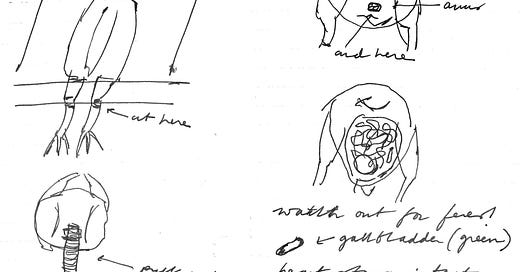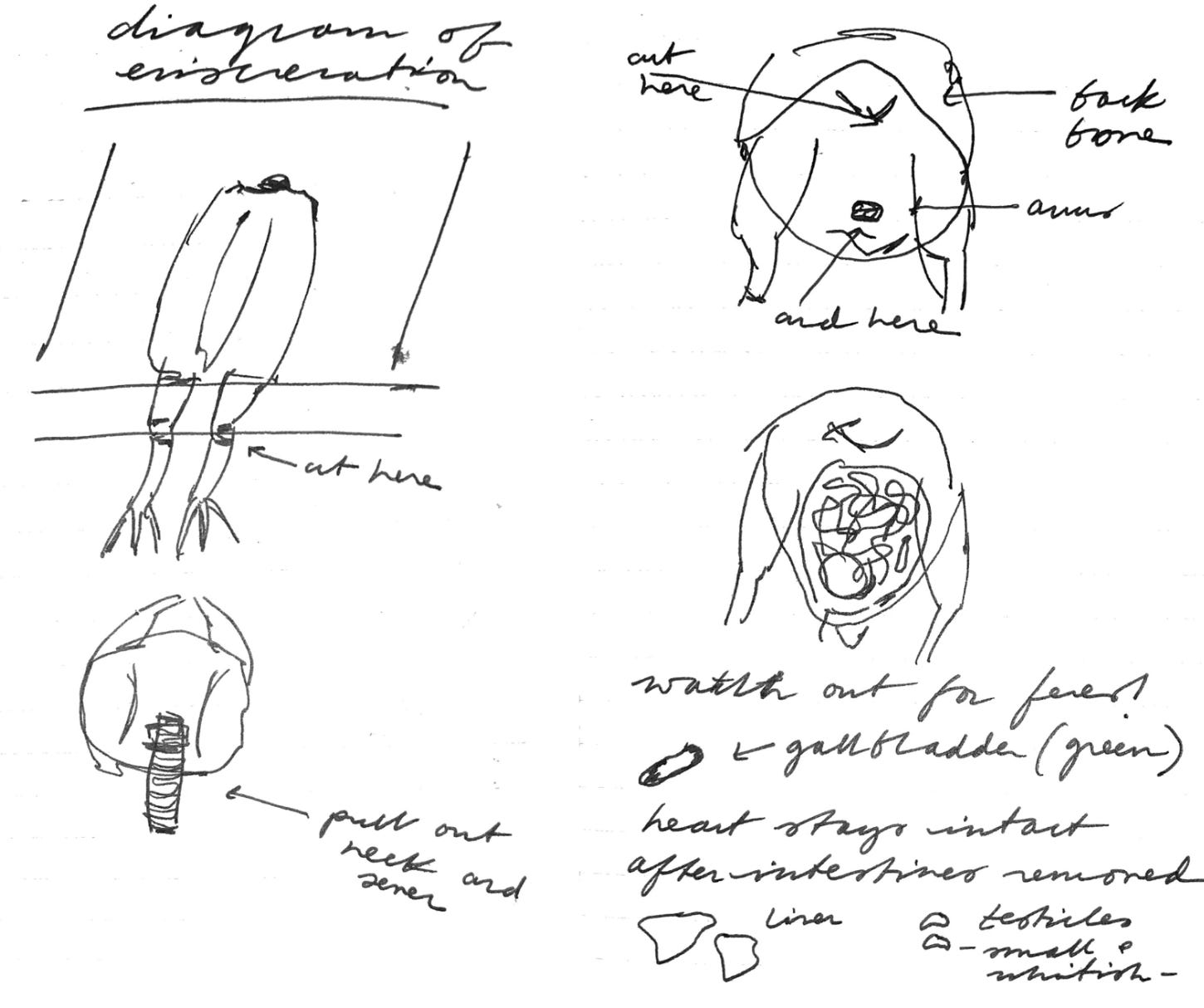All the times I’ve read the Latin word viscera couldn’t prepare me for the disembowelment of a (very recently) dead chicken. Intestines strewn about with Illiadic proportions! Under the supervision of a trained butcheress I learned to take the chicken from the “death cones,” as I call them, to the steamer, to the plucker, and finally to being something that resembles food. That involved severing the legs, then the neck, then excising the various slimy sanguine organs. I was wholly unprepared for the sight of the slaughter—the blood was particularly garish. The birds flailed about for a while before falling still.
And not three hours later I was reading The Tempest! A schizophrenic day if ever I had one. Miranda’s sudden cry of grief prompted unusually vegetarian sympathies in me. “O how I have suffered,” she wails, “with those that I saw suffer! A brave vessel, / Who had no doubt, some noble creature in her, / Dashed all to pieces. O, the cry did knock / Against my very heart! Poor souls, they perished.” Suddenly I was seeing innards everywhere! “I will rend an oak,” threatens Prospero, “and peg thee in his knotty entrails till / Thou hast howled away twelve winters.” Thanks, Shakespeare, for the image of trees with chicken livers.
Best not to know about such things. Best to keep viscera for epic and leave the visceral experiences to those with stouter hearts.





